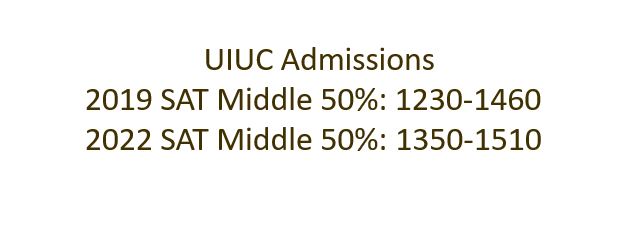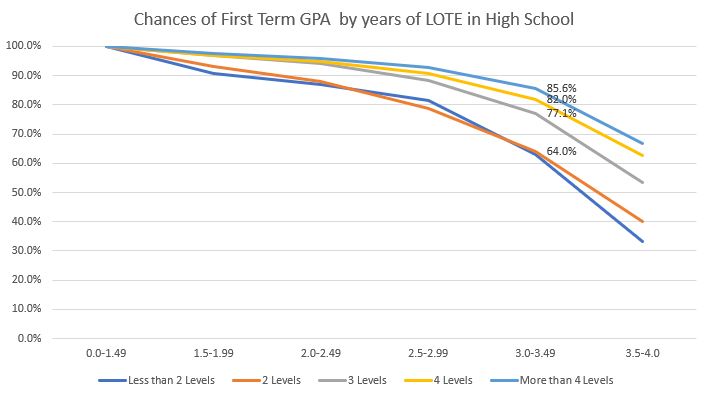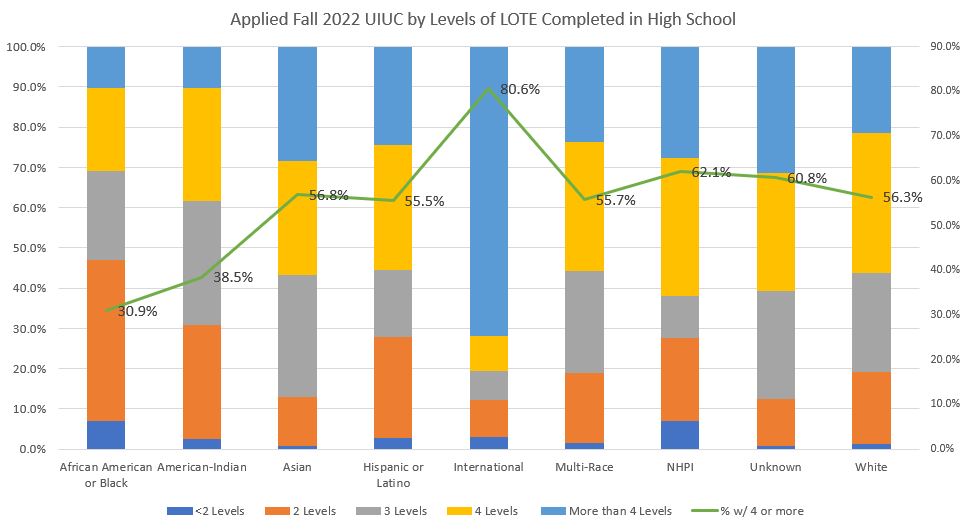With the intention of moving away from the middle 50% of SAT/ACT scores, we are exploring different ways to provide information to students, parents, and counselors about who gets admitted to UIUC.
This is a thread about Language Other Than English and college admissions.🧵
This is a thread about Language Other Than English and college admissions.🧵
Who gets admitted to UIUC? We want to explore new ways to show who gets admitted by breaking down certain components of our application process, such as our expectation for students to take a language other than English in high school. 

Most students admitted to UIUC (66.2%) took 4 levels or more of a language other than English.
36.5% took more than 4 levels, 85.3% took 3 or more levels, and 98.5% took 2 or more levels.
36.5% took more than 4 levels, 85.3% took 3 or more levels, and 98.5% took 2 or more levels.
Since the pandemic, the profile of student we admit hasn't changed drastically, but our middle 50% has become skewed based on who chooses to submit scores. Notice how the interquartile range changes when 45% of the distribution isn't represented: 

Our admissions process places the most weight on consistent achievement at the highest curriculum level available to the student, especially in English, LOTE, Math, Science, and Social Science. admissions.illinois.edu/apply/freshman…
Strong performance in these core academic areas are most important to our admission process. I've already tweeted about math (and calculus) in other threads, so let's dig in further into Language Other than English (LOTE).
https://twitter.com/AndyBorstUofI/status/1576241694764597250
At UIUC, levels of LOTE in high school were correlated (emphasis added) to first-year GPA performance, with each level being associated with stronger grades in the first term of college. 

At the same time, no matter what factors we consider in admission, many requirements may be insidious in perpetuating inequality.
There are notable differences in who takes more levels of LOTE based on who qualifies for a financial hardship fee waiver
There are notable differences in who takes more levels of LOTE based on who qualifies for a financial hardship fee waiver

Hey @akilbello, add LOTE to the list
https://twitter.com/akilbello/status/1455574022675177480
There are also significant differences in levels of LOTE by race/ethnicity.
Only 30.9% of African American/Black students took 4 or more levels of LOTE, compared to 56.3% of white students.
Only 30.9% of African American/Black students took 4 or more levels of LOTE, compared to 56.3% of white students.

The less information we share about what happens inside the black box of college admissions, the more frustration builds.
My hope is to find new ways to convey information that will be helpful to students, while also challenging conventional metrics in college admissions.
My hope is to find new ways to convey information that will be helpful to students, while also challenging conventional metrics in college admissions.
What other decision points do high school students face in choosing a curriculum (when it is their choice)?
https://twitter.com/AndyBorstUofI/status/1623001871194419200
• • •
Missing some Tweet in this thread? You can try to
force a refresh









